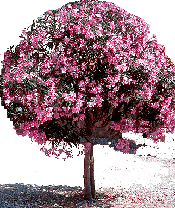Phytochemicals Nutritionists and researchers
have known for a long time that a diet high in complex carbohydrates
(fruit, vegetables, and grains) had a protective effect against
cancer. Research continuously showed that vegetarians had a lower
incidence of cancer, stroke, diabetes, and coronary artery disease
as well as other diseases. We've known that fiber was a big contributor
but suspected there must be something else - and there was. We
now know about phytochemicals. Nutritionists and researchers
have known for a long time that a diet high in complex carbohydrates
(fruit, vegetables, and grains) had a protective effect against
cancer. Research continuously showed that vegetarians had a lower
incidence of cancer, stroke, diabetes, and coronary artery disease
as well as other diseases. We've known that fiber was a big contributor
but suspected there must be something else - and there was. We
now know about phytochemicals.
"Phytochemical"
is a general term used to describe over 1000 naturally occurring
compounds in plants. You may have heard about lycopenes, isoflavones,
and flavinoids, all
phytochemicals.
All fruit and
vegetables contain an abundance of phytochemicals, but two foods
highest in these substances are oranges and tomatoes. Phytochemicals
can even be found in products like salsa, spaghetti sauce, and
orange juice!
Flavinoids, found
in red wine, champagne, lightly colored beer, nuts, fruit, and
some vegetables, are believed to provide protection against coronary
artery disease.
Cruciferous vegetables,
broccoli, onions, cauliflower, cabbage, and brussels sprouts,
contain substances that may help prevent colon cancer, along with peppers, brown rice, licorice,
whole wheat, carrots, and green tea which may also have cancer-fighting
ability.
If you have abnormally
high blood
cholesterol levels,
you'll be interested to know that psyllium seed and garlic are
being studied for their ability to lower cholesterol.
The National
Cancer Institute is taking the issue of phytochemicals quite
seriously and has recently funded money for new research in this
area. Drug manufacturers, as well, are looking at soybean phytochemicals
to use in their cancer-fighting drugs.
Beware! The fad diet industry
is selling their line of products consisting of pills and potions
they claim contain phytochemicals that will cure everything from
impotence to aging. But we've learned that pills don't always have the same effect
on disease prevention as food. For example, studies show  that
beta-carotene, the pre-cursor to Vitamin A, helps protect us
against lung cancer. However, taking supplements of beta-carotene
and Vitamin A can actually increase the risk! One research study
was terminated when it was discovered that participants using
these supplements were acquiring lung cancer at a faster rate
than placebo subjects. We now know that when beta-carotene is
derived from fruit and vegetables, it has a protective effect,
but when it's obtained from supplements, it has the opposite
effect! that
beta-carotene, the pre-cursor to Vitamin A, helps protect us
against lung cancer. However, taking supplements of beta-carotene
and Vitamin A can actually increase the risk! One research study
was terminated when it was discovered that participants using
these supplements were acquiring lung cancer at a faster rate
than placebo subjects. We now know that when beta-carotene is
derived from fruit and vegetables, it has a protective effect,
but when it's obtained from supplements, it has the opposite
effect!
Remember, research
is just beginning - there's a lot to learn about what phytochemicals
will or won't do. Although the information will be new, the advice
is old - Be
sure to include plenty of fresh fruit, vegetables, and grains
in your daily diet!
NUtritionTipS
-Did you know that Phytochemicals . .
. . are found only in
plant foods.
. . may help prevent tooth decay.
. . may help prevent coronary artery disease.
Where do you get your nutrition
information? Most states now have licensure laws for Dietitians
and Nutritionists. Be sure your nutrition advisor is "Licensed"
by the State as a Licensed Dietitian (LD) or Licensed Nutritionist
(LN), or in states that don't have licensure laws, a Registered
Dietitian.
CarboH,
Inc.
Barbara Herondorf, L.D.
|

